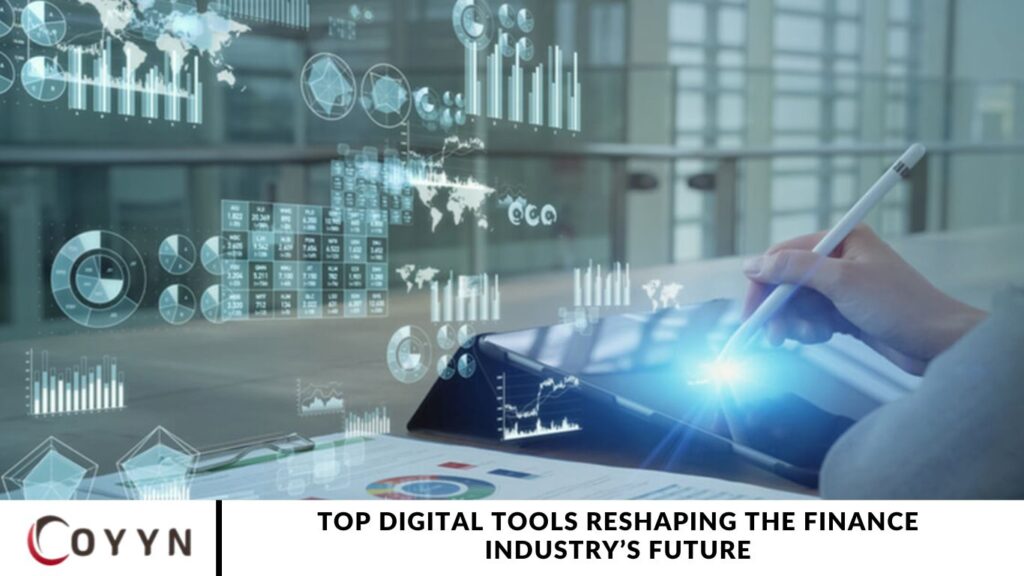Digital innovation is rapidly reshaping the finance industry, revolutionizing how institutions operate and serve customers. Modern financial tools are automating once-manual processes such as transaction processing, account management, and data reconciliation—dramatically improving operational efficiency and enhancing data accuracy across the board.
With the rise of digital banking, customers now enjoy 24/7 access to their financial accounts and personalized services tailored to their specific needs. Mobile banking apps and digital payment platforms are expanding financial accessibility, especially in underserved and remote areas where traditional banking infrastructure is limited.
The integration of cutting-edge technologies like Blockchain, artificial intelligence (AI), cloud computing, and workload automation is fundamentally changing how banks assess risk, manage sensitive client data, and deliver real-time financial services. These advancements not only streamline internal processes but also elevate the security, scalability, and agility of financial operations.
Furthermore, the mainstream adoption of cryptocurrencies and automated financial tools is signaling a profound shift in the industry’s landscape. Financial institutions embracing digital transformation are better positioned to gain a competitive edge, safeguard digital assets, and adapt swiftly to evolving consumer demands and market trends.
Essential Digital Tools for Streamlining Business Finances
As the finance sector undergoes rapid digital transformation, a wide array of digital tools has emerged to streamline financial operations, enhance data accuracy, and boost overall efficiency. These innovations are redefining how businesses manage their finances and prepare for future growth.
Cloud-Based ERP Systems and Business Automation
Cloud-based ERP solutions are at the forefront of financial innovation, offering scalable and integrated platforms for managing key business functions. Leading tools like Acumatica Cloud ERP and Oracle NetSuite empower growing enterprises by automating financial workflows, simplifying reporting, and enabling real-time data access for more intelligent decision-making.
Financial Planning and Analysis (FP&A) Platforms
Modern FP&A tools are essential for strategic planning and agile decision-making. Cube and Vena Solutions offer spreadsheet-native platforms with robust forecasting and predictive analytics features, making them ideal for dynamic planning environments. Meanwhile, Workday Adaptive Planning and Anaplan provide enterprise-grade solutions that cater to global brands, delivering robust financial insights and real-time collaboration capabilities.
Accounting and Financial Management Software
For everyday accounting needs, QuickBooks and Xero stand out as user-friendly, cloud-based platforms tailored for small and medium-sized businesses. Sage Intacct, recognized by the AICPA, offers a comprehensive cloud financial management system designed to automate complex accounting processes. Additionally, Zoho Finance Plus presents a fully integrated finance suite, streamlining all back-office operations from a single platform.
Security Tools: VPNs and Proxies in Finance
While VPNs and proxies can enhance privacy and provide limited security benefits, they should not be the cornerstone of financial data protection. Businesses are encouraged to prioritize robust cybersecurity practices and utilize financial software with built-in security features, including end-to-end encryption, secure APIs, and compliance with global standards like GDPR and SOC 2.
Innovative Tools for Budgeting and Expense Management
In today’s fast-paced financial landscape, cutting-edge digital tools are reshaping how individuals and businesses track, manage, and optimize their budgets. Here’s an overview of some of the most potent budgeting and expense management solutions available:
You Need a Budget (YNAB)
YNAB sets itself apart with real-time expense tracking by seamlessly linking to bank accounts. Its zero-based budgeting approach ensures every dollar is purposefully allocated, fostering smarter spending habits and greater financial control.
Rocket Money and Goodbudget
Rocket Money helps users maximize savings by automatically tracking subscriptions, recurring bills, and spending patterns. Goodbudget simplifies personal finance management with its classic envelope budgeting method, making it easy to categorize expenses and stay organized.
Collaborative and All-in-One Financial Solutions
Honeydue is designed for couples, offering joint banking features and in-app communication to streamline shared financial goals. PocketGuard uses intelligent algorithms to monitor spending, integrate debt repayment strategies, and enhance security with anti-fraud measures.
For businesses, SpendControl and Rho deliver robust financial management platforms that automate expense approvals, monitor budgets, and provide real-time financial oversight, significantly improving operational efficiency.
Fueled by AI-driven predictive analytics and automation, these tools are revolutionizing the financial management ecosystem. Whether for personal budgeting or enterprise-level expense management, these innovations are driving greater transparency, efficiency, and financial wellness for users across all sectors.
Digital Solutions for Enhanced Invoice Processing and Vendor Management
In today’s fast-paced financial landscape, digital innovations in invoice processing and vendor management are becoming essential for driving operational efficiency and financial clarity. These innovative solutions go beyond automating repetitive tasks—they also boost accuracy, reduce human error, and support strategic financial decision-making.
Smart Invoice and Expense Management Tools
Platforms like Invoicera and Happay have emerged as game-changers in expense tracking and management. With features such as multi-currency support, real-time expense tracking, and automated workflows, these tools are tailored for global businesses.
- Invoicera stands out for its customizable reports and robust automation tools, which simplify the entire invoice lifecycle—from creation to payment.
- Happay enhances compliance and visibility with its real-time policy violation alerts and seamless GST capture, streamlining financial audits and approvals.
AI-Powered Expense Reporting and Fraud Prevention
Tools like Zoho Expense and Expensify bring intelligence to travel and expense management.
- Zoho Expense uses AI-driven fraud detection to flag irregularities, ensuring accurate reimbursements and policy compliance.
- Expensify’s SmartScan feature automates receipt processing, making expense submissions faster and more accurate.
- Both solutions integrate smoothly with popular ERP systems, reducing redundancy, preventing duplicate entries, and improving operational flow.
Blockchain and Automation: The Future of Vendor Management
The next frontier in finance automation lies in the integration of blockchain technology and AI-based automation. Platforms like Rho and Nanonets are at the forefront of this transformation:
- Rho offers a fully integrated financial ecosystem featuring automated invoice approvals, vendor management, and connectivity with leading accounting platforms for seamless reporting.
- Nanonets uses machine learning to extract data, automate invoice processing, and generate advanced financial insights via dynamic dashboards.
These technologies ensure touchless transactions, boost transparency, and significantly cut down processing time—resulting in faster payments and improved vendor relationships.
Advanced Tools for Financial Analysis and Forecasting
In today’s rapidly evolving financial landscape, organizations must harness the power of modern tools to elevate their economic analysis and forecasting capabilities. These solutions streamline core processes and empower finance professionals to deliver deeper, data-driven strategic insights.

Dynamic Modeling and Scenario Planning for Strategic Agility
One of the most impactful innovations in finance is the rise of dynamic modeling tools and scenario planning capabilities. These tools enable finance teams to simulate multiple business outcomes and assess the potential impact of various strategic decisions.
By integrating data from ERP systems, HRIS, CRM platforms, and Google Sheets, businesses gain access to interactive dashboards that present real-time forecasts and visualizations. This interconnected data environment allows for more innovative, faster, and more informed decision-making across all levels of the organization.
Automation and System Integration: Streamlining Financial Workflows
Modern cloud-based FP&A (Financial Planning & Analysis) platforms are redefining how companies approach financial planning. With robust automation capabilities, these tools eliminate time-consuming manual processes and allow for:
- Real-time analytics and live updates
- Consolidated financial reporting
- Seamless data integration across CRM, GL, ERP, and HR systems
The result? A more agile and scalable financial planning process that adapts quickly to market changes and evolving business objectives.
AI-Powered Intelligence: The Future of FP&A
Artificial intelligence is rapidly becoming a cornerstone in the next generation of financial planning and forecasting. Through predictive analytics and what-if scenario simulations, AI enhances the accuracy and depth of economic models.
Key benefits include:
- Accelerated access to clean, actionable data
- Minimized manual input and human error
- Greater forecasting precision in volatile market conditions
By embedding AI into financial processes, organizations can prepare more proactively for economic shifts and operational risks, unlocking more substantial performance insights and competitive advantage.
Fintech disruption and industry competition
Fintech companies are reshaping the financial landscape by delivering cutting-edge solutions that challenge the conventional banking model. Unlike traditional financial institutions, fintech innovators build entirely new services using advanced technologies such as blockchain, artificial intelligence (AI), and peer-to-peer (P2P) lending platforms. These disruptive tools are giving rise to agile, customer-centric business models that redefine how people access and manage financial services.
Frequently Asked Question
What are digital tools in the finance industry?
Digital tools in finance refer to software and technologies that help automate, streamline, and enhance financial operations. Examples include cloud-based ERP systems, financial planning platforms, AI-driven analytics tools, and blockchain-based transaction systems.
How is cloud computing transforming finance?
Cloud computing enables real-time data access, scalability, and integration across platforms. It supports remote work, improves data security, and reduces IT costs for financial institutions.
What role does AI play in modern financial services?
Artificial intelligence (AI) is used for fraud detection, customer service (via chatbots), risk assessment, predictive analytics, and personalized banking experiences. It increases accuracy and helps people make informed decisions faster.
What is blockchain’s impact on the finance industry?
Blockchain technology ensures secure, transparent, and tamper-proof transactions. It is revolutionizing areas like cross-border payments, smart contracts, and digital identity verification, boosting trust and efficiency.
How do financial planning and analysis (FP&A) tools help organizations?
FP&A tools like Workday Adaptive Planning and Anaplan assist in budgeting, forecasting, and scenario planning. These tools offer real-time insights and integration with ERP and CRM systems, enabling data-driven strategies.
Which digital tools are best for accounting and bookkeeping?
Popular tools include QuickBooks, Xero, and Sage Intacct. They offer features such as automated invoicing, bank reconciliation, payroll processing, and financial reporting tailored to small and medium-sized businesses.
How are APIs reshaping financial integrations?
APIs (Application Programming Interfaces) enable seamless data exchange between banking systems, financial apps, and third-party platforms. They promote innovation, streamline services, and improve customer experiences.
Conclusion
The finance industry is undergoing a profound transformation fueled by cutting-edge digital tools. From AI-driven analytics and blockchain-powered transactions to cloud-based ERP systems and intelligent automation, these technologies are redefining how financial operations are managed and delivered. By enhancing accuracy, efficiency, and transparency, they empower organizations to make smarter, faster decisions in an increasingly complex landscape.
As traditional financial institutions adapt and fintech innovators continue to push boundaries, integrating these digital tools is no longer optional—it’s essential. Embracing this digital evolution will not only ensure long-term competitiveness but also set the foundation for a more agile, secure, and customer-centric financial ecosystem.


